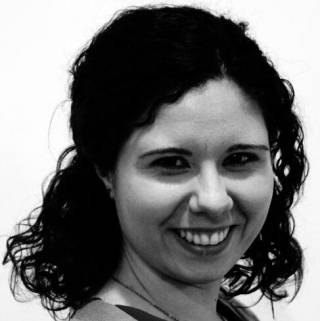Ask our STEM Ambassadors: Focus on Joana Neves Dos Reis
23 February 2018

How would you describe your area of study or work?
I work in the field of Regenerative Medicine, specifically in neuronal regeneration. My PhD project consists in producing a cell therapy that can treat spinal cord injury and my role is to test those cells for functionality.
How did you decide to study in your chosen field?
As an exchange student at UCL for 5 months I worked in the Regenerative Medicine team at the Biochemical Engineering Department. My project consisted in optimizing the attachment of mesenchymal stem cells to microcarriers for expansion for posterior use in bone regeneration. I really enjoyed my time in London and my research so when the opportunity to do a PhD in the department came up I knew I had to take it.
What attracted you to participate in outreach and engagement activities?
I have always been a science communication enthusiast and I love to talk about my research. Nonetheless communicating science to a non-specialized audience gain a whole new meaning for me when I started my PhD because it made me introspectively think about my PhD and understand it better so I could break it down in simple terms to explain it to people that are not from my field or that don’t work in science. My latest challenge has been to try to explain it to school children.
What are the best things about being a STEM Ambassador?
As I said before I really like to communicate my research even when some things don’t go so well. Especially then you need to take a step back and review why your research is important. Having to explain your work and its impact gives you the extra confidence boost you sometimes need to give you motivation on your research work. So I would say the best thing for me is the confidence it gives me, both at speaking in public and that what I am doing has an impact.
 What type of activities or programmes have you led / run as a STEM Ambassador?
What type of activities or programmes have you led / run as a STEM Ambassador?
I usually go to schools and talk to students about my career and my research and answer their questions about my project, engineering and science in general. I have done it in the form of talks but I also do it by reading science books with pupils and talking about curiosities mentioned in said books. In the future I hope to be able to perform simple experiments to explain more complex concepts.
What are the benefits of volunteering as a STEM Ambassador?
Being a STEM ambassador gives you confidence, motivation, other perspectives on science and your research and public speaking and engagement experience. Engaging with students about science can give you an interesting view on several aspects of your research and of science in general. Young students are really creative!
What was the reaction of the young people you worked with?
Amazement, curiosity, surprise, doubt, confusion and sometimes epiphany! It is great to see them going through all these emotions exactly as a researcher does.
What advice would you give young people wanting to study or work in STEM-related fields?
To stay curious, to be critic, and question a lot. Also to work in multidisciplinary and diverse teams. Working with people from all sorts of academic and cultural backgrounds has taught me more than any book. And enjoy it. If a STEM job is want you want make sure you choose a subject you are passionate about, don’t settle for less.
 Close
Close

